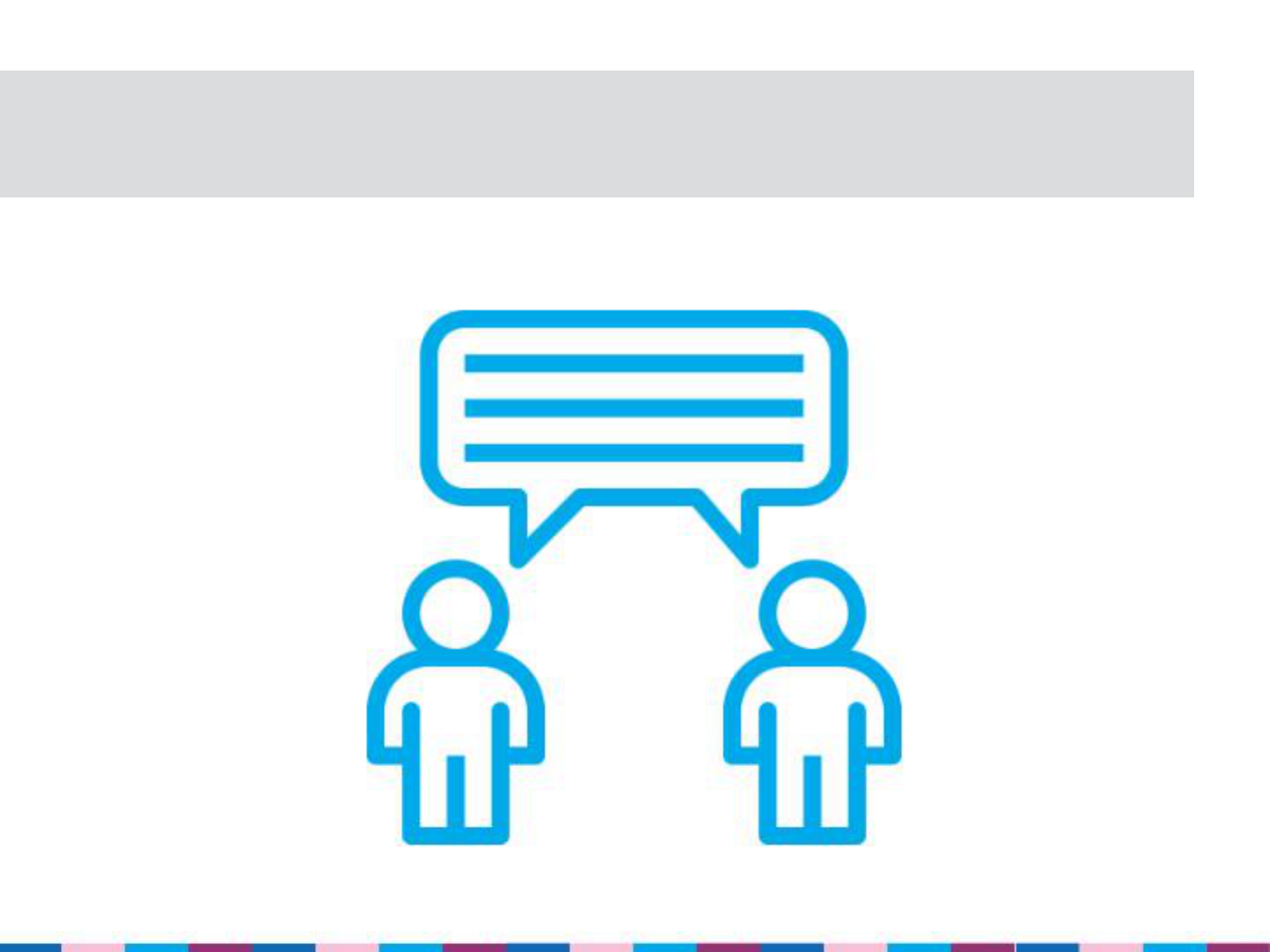
Freelance Isn’t Free Act
Free Webinar for Freelance
Workers
June 15, 2017
Gillian Stoddard Leatherberry & Zanib Ahmad

Agenda
DCA Office of Labor Policy & Standards
Worker Rights and Misclassification
Freelance Isn’t Free Act
Your Rights
Questions

Local Law 104 of 2015: DCA Office of Labor
Policy & Standards (OLPS)

DCA’s Office of Labor Policy & Standards
(OLPS) is a dedicated voice in City
government for workers. Charged with
helping vulnerable workers, OLPS
embraces our mandate to focus on issues
affecting immigrants, people of color, and
women in the workplace.

Enforcement
Outreach and Education
Paid Care Division
Complaint Intake and Referral
Research, Advocacy, and Policy
Development
What we do for you:

Robust staff of attorneys, investigators,
outreach and education specialists, as
well as research and policy analysts.
Interdisciplinary and data-driven.
Strong collaboration with workers,
unions, and worker organizations.
OLPS Team

Paid Sick Leave Law
Freelance Isn’t Free Act
Commuter Benefits Law
Grocery Worker Retention Act
Living and Prevailing Wage Law
Fair Workweek (Law takes effect in November 2017)
We enforce key NYC workplace
laws and rules, including:

Freelance Isn’t Free Act, first of its kind in
nation, took effect on May 15, 2017

71% of freelance workers had trouble
collecting payment during their careers.
Only 28% of freelance workers operated
under written contracts.
$5,968 is the average annual unpaid income
for freelance workers.
Source: 2015 Freelancers Union Report, The Costs of Nonpayment.
BEFORE Freelance Isn’t Free Act:

Employees and independent contractors have
different rights.
o Most workers are employees.
o When an employer inaccurately treats a worker as an
independent contractor when he/she is an employee, it is a
misclassification.
Main Question: Is the person truly working for
themselves or are they economically dependent on
the employer?
o Note: Courts have created many fact-dependent tests to
answer this question.
Worker Classification

Written contracts were not required.
For non-payments, freelancers filed breach
of contract claim.
Few, if any, protections from retaliation.
Freelancers paid their own attorney fees.
BEFORE Freelance Isn’t Free Act:

Misclassification
NYC Human
Rights Law
Employee Rights:
Minimum wage
Overtime
State and federal anti-harassment and anti-discrimination law
Right to unionize & collectively bargain
Health insurance through ER
Family and Medical Leave Act
NYC Paid Sick Leave
Safe working environment laws (OSHA and NYS health and
safety standards)
Workers’ compensation premiums
ER pays half of FICA taxes
Unemployment insurance
Independent Contractor Rights:
Based on contract
Independent Contractor Obligations:
100% of FICA taxes
Work-related expenses
If purchased, liability insurance
BEFORE
the Law
Misclassification
occurs when an
employer inaccurately
treats a worker as a
contractor when they
are an employee.

Your Rights
You have rights regardless of your immigration status.
Written Contract
Timely Payment
Freedom from Retaliation
Right to File a Complaint
Right to Sue for Double Damages + Attorney Fees
Right to Court Navigation Services

Misclassification
NYC Human
Rights Law
Employee Rights:
Minimum wage
Overtime
State and federal anti-harassment and anti-discrimination law
Right to unionize & collectively bargain
Health insurance through ER
Family and Medical Leave Act
NYC Paid Sick Leave
Safe working environment laws (OSHA and NYS health and
safety standards)
Workers’ compensation premiums
ER pays half of FICA taxes
Unemployment insurance
Freelance Isn’t Free Act
Written Contract
Timely Payment
Freedom from Retaliation
Right to File a Complaint
Right to Sue for FIF Violation
Independent Contractor Rights:
Based on contract
Independent Contractor Obligations:
100% of FICA taxes
Work-related expenses
If purchased, liability insurance
AFTER the
Law

Who is a freelance worker?
Any individual hired or retained as an independent
contractor by a hiring party to provide services for
compensation. Individuals may qualify as freelance
workers under the Law even if they are
incorporated or use a trade name.
Freelance workers are covered by the Law
regardless of their immigration status.
EXCEPTIONS: Certain sales representatives,
attorneys, licensed medical professionals, and
workers hired/retained by any government agency.

Who is a hiring party?
A hiring party is any person, organization, or entity
other than a local, state, federal, or foreign
government that retains a freelance worker to
provide any service for compensation.

Scenarios: Who is a freelance worker?
Quick Checklist to Identify Freelance Worker:
Is an individual worker (i.e., single person)
Was hired as an independent contractor
Provides services in exchange for compensation
Is not an exempt worker as defined by the Law
A knitter sells an $1,000 blanket on her website, and the buyer agrees to
pay by check. However, the check never arrives, despite the fact that the
knitter mails the blanket.
A Long Island family commissions an architectural firm to design a spiral
staircase. There is only one architect working with the firm. There is a
written contract, and the Hiring Party misses the first installment payment
by 60 days. The firm’s office administrator calls the Hiring Party, but no
payment results.
A physician has a written agreement with a local restaurant to play the
saxophone every weekend for 120 days. However, the restaurant doesn’t
pay him the $3,000 he is owed by the payment date listed in the contract.

Questions?

Right to a Written Contract
All contracts worth $800 or more must be in
writing. This includes all agreements between you
and the hiring party that total $800 in any 120-day
period. This applies to contracts entered on or after
May 15, 2017 (date the Law went into effect).
Contracts must include:
Name and mailing address of worker and hiring party
Itemization of all services
Value of the services provided
Rate & method of compensation
Pay date (or mechanism to determine pay
date)

Right to Timely Payment
The hiring party must pay you for all completed
work. You must receive payment on or before the
date that is in the contract. If the contract does not
include a payment date, the hiring party must pay
you within 30 days of completing the work.
Once you begin the work, the hiring party may
not require you accept less than the agreed-
upon amount.

Scenarios: What are contract and
nonpayment violations?
A fashion magazine hires a freelance journalist to write an article in April
of 2017. The work is finished in June, but the magazine never pays the
journalist.
A couple hires a videographer for their wedding. The videographer
requests a contract, but the couple does not sign one and no payment
date is agreed upon. The couple pays the videographer in full 60 days
after the video is finished.
A family hires a housecleaner to spend 16 hours each week in July to
clean their 4-story brownstone after consecutive weekend summer
parties, for a total of $2,000. After the cleaner has completed one day of
work, the family tells her that she will be paid according to their contract
if she will accept $1,500. Otherwise, she can wait until September for
the full amount.

Questions?

Freedom from Retaliation
It is illegal for a hiring party to
penalize, threaten, or blacklist
you because you exercised
your rights.
o Preventing the worker from procuring work by telling other
employers not to hire them
o Sending the worker a letter threatening unwarranted legal action
o Delaying or reducing payment, or refusing to pay

Scenarios: What is a violation of
worker’s freedom from retaliation?
A screenwriter sues a hiring party for a violation of the NYC Freelance
Isn’t Free law. The day after the hiring party receives a copy of the
lawsuit, the hiring party angrily calls the screenwriter and tells her that he
will never work with her again because she filed a lawsuit against him.
A model asks a hiring party for a written contract, but is told in the next
conversation that the hiring party has decided to “go in another
direction.”
An interpreter’s payment is one day late and he requests payment from
the hiring party. The hiring party pays the worker a day late and tells him
that normally he would not work with someone again if they asked for
payment the day after the due date, but she will “let it slide this time.”
The hiring party leaves a negative review on the interpreter’s website,
but contacts him the following week for another job.

Questions?

How to Access Your Rights
Communicate directly with the Hiring Party
o Request payment for violation of Freelance Isn’t
Free Law
o Negotiate a settlement
File a complaint with OLPS
Go to court

Right to File a Complaint
You can file a complaint with DCA’s
Office of Labor Policy & Standards.
You must file complaint within two
years of the date of violation.

Complaint Process
Freelance
Worker
files a
complaint
with
OLPS.
OLPS
sends
complaint
to the
Hiring
Party.
Hiring
Party
responds
to
complaint.
OLPS
sends
response
to
Freelance
Worker.
OLPS
sends
survey to
Freelance
Worker.
Within 6
months
Within 20
days
If Hiring Party does not respond,
Freelance Worker will receive a
presumption in their favor in court.
Court Navigation
Services can help
Within 20
days
Within 20
days
OLPS Process
Research

Right to Sue
Freelance workers can sue the hiring
party in court to seek damages.
Freelance workers must file claim in
court for no written contract within two
years of the date of violation.
Freelance workers must file claim in
court for nonpayment, underpayment,
or act of retaliation within six years* of
the date of violation.
*Six years is the New York State statute of limitations under contract law.

Court Navigation Program
Court Navigation Services are non-attorneys
specifically trained to help you:
o Access the court system, court forms and
templates.
o Access interpretation and translation resources.
o Access resources about work classification.
o Find an attorney.
Download our Court Navigation Guide for
Freelance Workers at nyc.gov/dca

Violations and Damages
If a hiring party:
A judge may order the
hiring party to:
Failure to enter
into a written
contract
Failed to enter into a written contract
AND
violated any other provision of the Law
Pay the freelance worker
damages equal to the value
of the contract
Refused to enter into a written contract, but did
not violate the Law in any other way
Pay the freelance worker
$250
Nonpayment or
underpayment
Failed to pay a freelance worker the amount
agreed to under the contract
•
on the payment due date under the
contract; OR
•
within 30 days after the freelance worker
completes work on the contract (if the
contract does not specify a due date)
Pay the freelance worker
double damages, injunctive
relief, and other appropriate
remedies
Retaliation
Retaliated against a freelance worker
Pay the freelance worker
damages equal to the value
of the contract for each
retaliation violation
*Attorneys’ fees and costs are available for all successful claims.

Patterns of Abuse
If a Hiring Party has a “pattern or practice” of
violating the Freelance Isn’t Free Act, the City of
New York may sue the Hiring Party. NYC may
pursue any appropriate relief and civil penalties of
up to $25,000.
When a hiring party demonstrates such a pattern:
o City Law Department may file a civil suit against
the hiring party.
o Freelance workers may still file a complaint and
a civil suit for the same violations.

Scenarios: How can freelance
workers access their rights?
A wedding planner finishes work for a client, but the
hiring party does not pay the worker on time. The
worker requests payment and the hiring party sues
him for breach of contract.
A construction worker contracts individually with a
hiring party. The worker discovers that other workers
have been similarly hired by the same hiring party to
do the same work. The hiring party does not pay the
workers the amount promised.

Questions?

The Department of Consumer Affairs (DCA)
Office of Labor Policy & Standards is NYC’s
central resource for workers.
How to reach us:
Call 311 (212-NEW-YORK outside NYC). Ask for
Freelance Workers.
Email [email protected]c.gov
Visit 42 Broadway, 9th Floor, in Lower Manhattan.
Visit nyc.gov/dca
